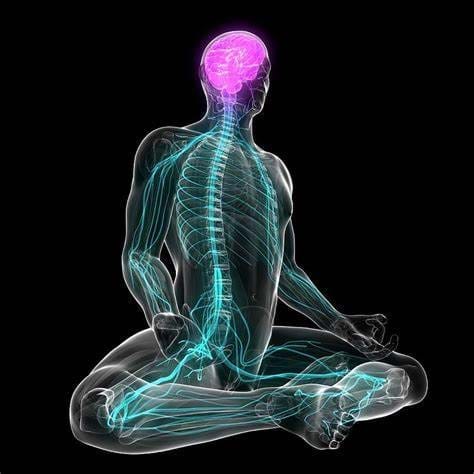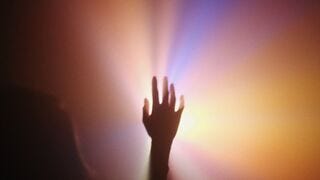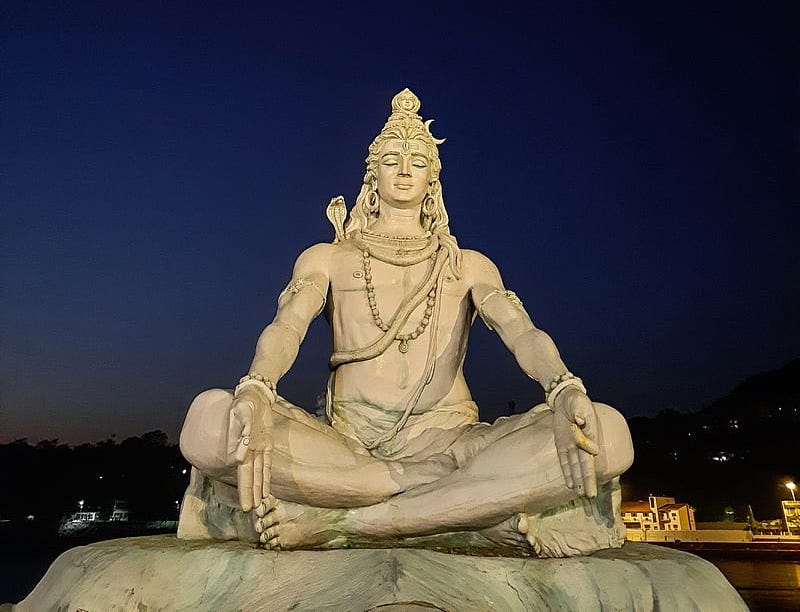If you’ve spent time in spiritual circles lately, you’ve likely encountered people talking about awakening. Some describe it as an expansion of consciousness, a connection to something greater than themselves, or a sudden, life-altering realization about the nature of reality. Others say it’s like being hit by a cosmic freight train—disorienting, overwhelming, and, at times, deeply destabilizing.
While the mainstream narrative around meditation and spirituality often highlights peace, love, and enlightenment, what’s rarely discussed are the potential side effects. Spiritual awakening—whether spontaneous or intentional—can disrupt an individual’s sense of identity, perception of reality, and even physical and mental well-being. Some emerge from the experience transformed, wiser, and more grounded. Others spiral into anxiety, confusion, or even psychosis.
Phil Borges at TEDxUMKC
This article is not meant to discourage seekers but to prepare them. Awakening is real, and it is powerful. But like any profound transformation, it must be approached with knowledge, caution, and respect.
The Science of Spiritual Awakening: What Happens in the Mind and Body?
While spiritual traditions have long warned about the dangers of rapid transformation, modern research is only beginning to catch up. Studies on mindfulness meditation, Kundalini energy, and altered states of consciousness suggest that spiritual experiences can have profound neurological and psychological effects, both positive and negative. A key area of research focuses on the physiological and psychological shifts that can occur during deep meditation or spontaneous awakening experiences. The autonomic nervous system, which controls our fight-or-flight and rest-and-digest responses, can become dysregulated. Some individuals experience extreme bliss, heightened sensory perception, or a deep sense of interconnectedness. Others, however, report panic attacks, insomnia, dissociation, or even hallucinatory episodes.
One extensive study examined the effects of mindfulness-based meditation and found that while most participants benefited from improved focus and emotional regulation, a small but significant percentage experienced adverse effects, such as increased anxiety and depression. More intensive or unstructured spiritual practices, such as prolonged meditation retreats, can increase the likelihood of these effects. Historically, many mystical traditions prepared their initiates for these experiences through structured teachings and mentorship, ensuring they did not become lost in the depths of their own minds.
Mystical Traditions Have Always Warned of These Dangers
Long before modern neuroscience, ancient wisdom traditions understood that the human mind and spirit could be profoundly altered by deep spiritual practice. In Eastern traditions, the Kundalini awakening—described as a powerful energy rising up the spine—was considered both a path to enlightenment and a potential source of madness if not properly guided. Tibetan Buddhism, Hindu yogic traditions, and even certain branches of Christian mysticism all spoke of spiritual crises that could arise during the journey toward higher awareness.
In some cases, those experiencing an awakening may feel as though they have discovered a secret truth that others cannot see. This can lead to what psychologists now recognize as a form of spiritual grandiosity, where individuals believe they are chosen, enlightened, or have a special mission. Others experience the opposite: a collapse of meaning, a void where their old sense of self once existed, leading to despair and existential anxiety.
Many cultures had safeguards in place—teachers, structured initiations, or grounding practices—to prevent seekers from being consumed by their own experiences. In modern times, however, the accessibility of meditation, psychedelics, and esoteric teachings means that people often undergo these transformations alone, without guidance, and without understanding what is happening to them.
The Spectrum of Spiritual Awakening: Transcendence or Crisis?
Not all awakenings lead to suffering. Many people find their spiritual path to be a source of great healing, meaning, and inner peace. But those who experience rapid, intense shifts—often described as Kundalini awakenings, ego deaths, or mystical experiences—may struggle to integrate these changes into their everyday lives.
The spectrum of awakening can be broken down into several common experiences:
Mild Awakening: Increased mindfulness, enhanced perception, a sense of peace and unity.
Moderate Awakening: Disorientation, emotional sensitivity, fluctuations between bliss and anxiety.
Severe Awakening (Spiritual Crisis): Loss of identity, paranoia, hallucinations, inability to function in daily life.
While the first two categories are often beneficial, the last can be disruptive or even dangerous. Those who experience an extreme awakening may suddenly feel compelled to abandon their old lives, quitting jobs, ending relationships, or withdrawing from society entirely. Others may find themselves unable to sleep, caught in a whirlwind of existential thoughts, or experiencing sensory overload.
In the most severe cases, people undergoing a spiritual crisis may exhibit behaviors that resemble psychosis—hearing voices, believing they are a deity, or feeling they have uncovered an ultimate, terrifying truth about reality. The challenge is differentiating between a genuine mystical experience and a psychological break.
How to Navigate Spiritual Awakening Safely
If you—or someone you know—is experiencing intense spiritual shifts, there are ways to ground yourself and integrate these experiences without losing stability.
Slow Down. If meditation or spiritual practices are causing distress, ease off. Not every journey has to be rushed.
Stay Connected. Isolation can worsen disorientation. Talk to trusted friends, mentors, or professionals who understand spiritual experiences.
Engage in Physical Activity. Exercise, nature walks, and grounding techniques can help stabilize the nervous system.
Seek Guidance. Traditional spiritual teachers, therapists familiar with transpersonal psychology, or even mindfulness-based stress reduction (MBSR) programs can provide valuable insights.
Maintain Daily Structure. Keeping a regular routine—sleeping, eating well, and engaging in simple, earthly tasks—can prevent you from becoming lost in abstract or overwhelming thoughts.
Understand That It’s a Process. Awakening is not a one-time event but an unfolding journey. What feels chaotic now may later make sense as part of a larger transformation.
Awakening is Real, But So Are the Challenges
The spiritual path is not all love and light. True awakening—whether through meditation, crisis, or spontaneous realization—can be both beautiful and terrifying. The human psyche is vast and complex, and when we open ourselves to higher states of consciousness, we must be prepared for both the light and the shadows.
The purpose of this discussion is not to discourage but to inform. With proper knowledge, guidance, and grounding, spiritual awakening can be a deeply enriching and transformative experience. Without it, seekers may find themselves lost in a world they no longer recognize.
The next wave of spiritual seekers will be larger than ever before. As meditation, psychedelics, and esoteric teachings become more mainstream, more individuals will undergo profound transformations. Some will thrive. Others may struggle.












Share this post